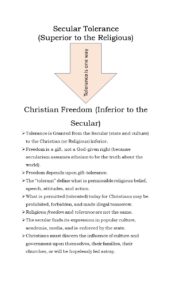
It has been argued that the command to gather for worship in Hebrews 10:25 is not really a command at all, but something of a suggestion that can be set aside for something more important, say, the civil authority’s desire to end in-person worship. So to proclaim as the Apostles, “we must obey God rather than men” (Acts 5:29) is not really appropriate since God does not here, nor anywhere else, actually command assembled worship.
Or so goes the argument.
But in Hebrews there is a verb form called hortatory subjunctive, a participle of means. It is used repeatedly as a command, often in a form that reads, “let us . . .” These statements are not options, but actual commands. See 4:1; 4:11; 4:14, 4:16; 6:1; 10:22; 10:23; 12:1; 12:28; 13:15; and 13:15. These are clearly commands, carrying the same weight as imperatives.
Therefore, the command to meet together is contained here:
“And let us consider how to stir up one another to love and good works, not neglecting to meet together, as is the habit of some, but encouraging one another, and all the more as you see the Day drawing near.” (Hebrews 10:24–25, ESV)
If meeting together is not a command, then neither is the first part of the sentence, “And let us consider how to stir up one another to love and good works.” God in Hebrews is commanding the stirring up of love and good works, which includes gathering together. It is unimaginable that this can be seen as anything but an actual command.
Some members of the wider Evangelical church in Canada argued that the civil government has authority over the church in the matter of gathering together. This was widely disseminated through the Gospel Coalition Canada, but other churches, denominations, and fellowships had their own version. Placing an impossible interpretation of Romans 13 ahead of God’s command to assemble, they surrendered to the state in this matter.
Jesus said, “the gates of Hell will not prevail” against His church (Matthew 16:18). But it seems the gates of Hell are doing just fine. lately. Perhaps it is because the church is not pressing the attack!
It would be far simpler for the Canadian church to simply confess the sin of disbanding than to go through the mental gymnastics necessary to make the commands of God into suggestions. We are facing this again soon—this time let’s get it right.


